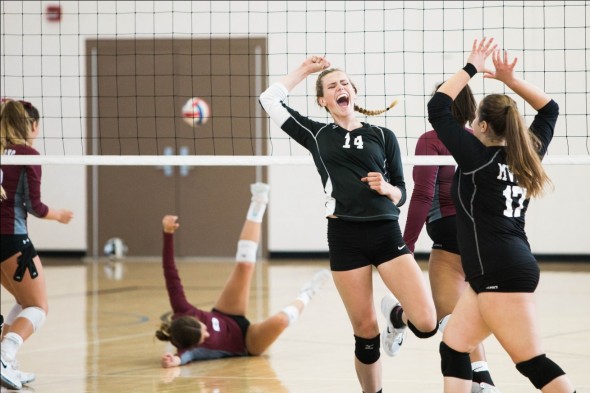 2019 is the year of self-care, and athletes are no exception. In fact, the NBA just released new guidelines on mental health, part of which includes hiring psychiatrists to help players and outlining action plans in the event of a mental health emergency. The focus and determination required to be an athlete means that your mental attitude is just as important as your physical fitness.
2019 is the year of self-care, and athletes are no exception. In fact, the NBA just released new guidelines on mental health, part of which includes hiring psychiatrists to help players and outlining action plans in the event of a mental health emergency. The focus and determination required to be an athlete means that your mental attitude is just as important as your physical fitness.
It is especially important for teams, since the energy of one member can greatly influence another. Instead of leaving individuals to fend for their own mental health, how about trying these strategies to improve team morale too?
Yoga
Yoga is great for stretching, but even better for mental health. In fact, NFL teams who practice yoga credit this exercise for boosting team morale. The act of physically slowing down to focus on your breath is a welcome respite from high-intensity drills. Undergoing new experiences as a team also fosters unity. Incorporating yoga into your routine can occur gradually, starting with thirty minutes at the end of each session before working up to one or two full sessions a week.
Changing self-talk
Take note of how you speak to your team members. Even if you have good intentions, negative speech can be more demotivating than useful — especially for young athletes. Psychologists at Maryville University note that social behaviors contribute largely to our mental health, which in turn affects how we go about our lives. The simple act of calling out negative speech when it occurs can go a long way in boosting morale and creating a supportive environment.
Volunteer
Devoting a day to volunteering takes your focus away from your own problems, while also reminding you how capable you are of helping out. For those who train individually, signing up for volunteering events can be a great way to meet other people. On the other hand, those in team sports can organize a volunteering meet-up as a bonding activity that can be done once or twice a month. Volunteering promotes a culture of giving back, reminding you that it’s not all about drills and practices.
Revisit the importance of rest days
Rest days are often thought of in physical terms, as our bodies need to recover from physical strain. That said, it’s equally important to view your days off as a time to mentally unwind and focus on other aspects of your life. Our previous post on Sport Psychology Today highlights just how necessary it is to take breaks every now and again. It’s easy to get overwhelmed if your mind is constantly thinking of how to improve your game. Taking both a mental and physical break renews your focus for when you do get back to your practice.
Check-in with your team
If you’re a coach or a team leader, it helps to meet individually with your players. Not only will these meetings help you formulate strategies to help your players improve, they’ll also help you establish a relationship of mutual trust and respect. You don’t have to go into deep personal detail; simply asking how your players are doing presents yourself as a source of support. For individuals, you might want to consider checking in with a therapist or a counselor every once in a while.
Sports are meant to bring joy to your life, but what good will such exercise do if you’re not in the right mindset? The best way to achieve peak athletic performance is to ensure that your physical health is aligned with your mental health. Perseverance is one of the key factors in building successful athletes, and your mental health plays a huge role in this regard. Knowing when to check in with yourself and your team gives you the strength to keep going in the long run.
Article exclusively written for sportpsychologytoday.com
by Betta Joleigh


























I agree that it is important to take rest days to unwind. I feel like most of my days off are just as busy as the days I have work or school. I’ll have to consider taking some time to unwind and see if that would help my mental health.